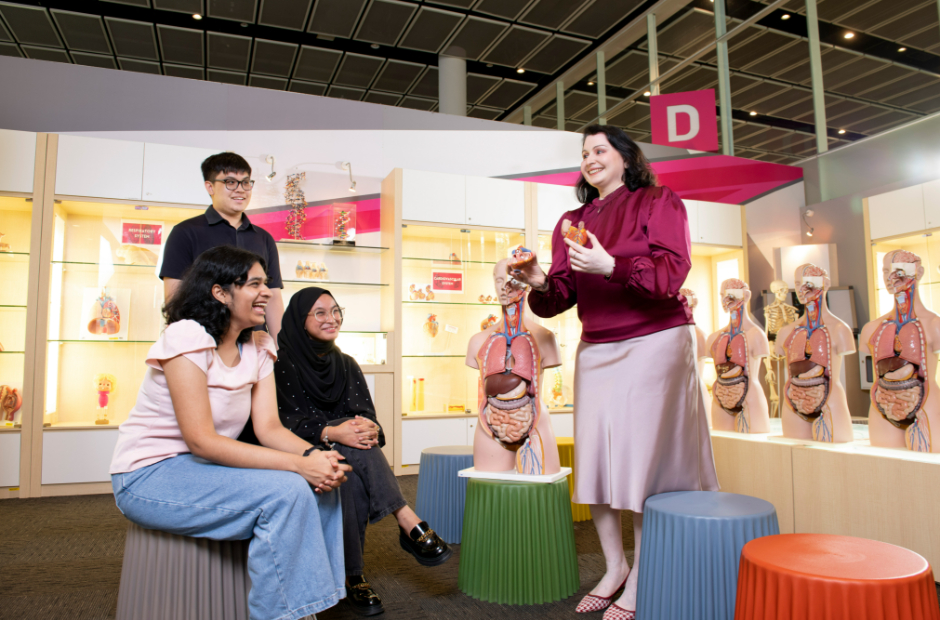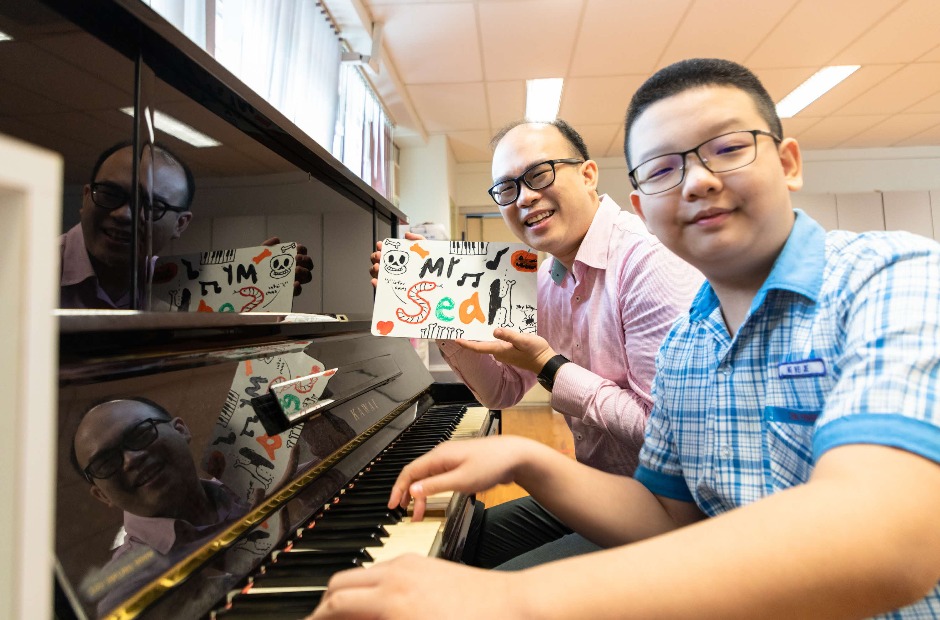Developing an Appetite for Success
21 Apr 2009

Formerly in the restaurant business, Mr Bernard Chan now teaches Northlight School students the ins and outs of the restaurant business.
Think only Martin Yan can cook? Not quite. At Northlight School, budding culinary specialists taking courses in the Hospitality Department are cooking up a storm, particularly with the help of one of their teachers, Mr Bernard Chan.
Mr Chan was formerly involved in the restaurant business, but switched to teaching about seven years ago. He now teaches Restaurant Service and Culinary Skills at Northlight School, and puts students through their paces in the school’s ‘live’ restaurant. Drawing a parallel between running a restaurant and managing a class, he says, “I try to provide my students with a good ‘ambience’ in the form of a conducive learning environment, so that they will be excited about the ‘brain food’ they get during the lesson and look forward to the next session.”
Northlight School students taking courses under the Hospitality Department don’t only learn to cook. They are trained in a whole gamut of skills that culminates in a two-month long industrial attachment. Other than food preparation, they learn how to conduct housekeeping services, develop effective communication skills to provide good customer service, and serve food with excellent waiting skills for the food and beverage industry.
In the ‘live’ restaurant, students get to put into practice what they have learned, and some also get to operate the restaurant. They serve mainly teachers and students, and has been ‘patronised’ by invited guests such as Prime Minister Lee Hsien Loong, Education Minister Dr Ng Eng Hen and the First Lady Mrs S.R. Nathan.
Reflecting on his role, Mr Chan remarks, “I regard my students as my ‘customers’, and I try to fulfill their needs through good service, ambience and, of course, food. But the ‘food’ I provide here is to nurture their minds and intellect.”
Food for thought
Mr Chan sees his role as not only teaching his students hospitality skills, but also helping to get their ‘brain juices’ flowing in the first place. For example, a firm believer in the benefits of eating proper meals, Mr Chan was concerned that students were having their meals at fast-food restaurants rather than eating meals cooked at home. He started an initiative to ensure that students have at least one hot meal a day, so that they can study better and concentrate in school.

Mr Chan not only teaches hospitality skills, he also encourages students to eat proper meals as well.
The school was aided in this effort through the Buddhist Lodge Foundation’s generous donation of rice. Initially, needy students lugged home 2-kg packets of the rice. However, Mr Chan realised that their busy working parents might not always have the time to cook at home.
So he roped in the canteen vendors. The rice is now given to them, who provide hot meals for the students during recess, but do not charge them for the rice. “Most of our students’ best meal of the day is when they are in school!” Mr Chan quips.
Bonding over food
Mr Chan’s positive experience with the rice donation spawned an idea for yet another initiative. To help teach students to be independent and of service to others as well, he guided Hospitality students to create a recipe book. It contains a treasure trove of recipes that are simple enough to follow, yet challenging enough for those with Jamie Oliver-esque inclinations.

Too many cooks spoil the broth? Not at Northlight School, with these eager Hospitality students and staff.
“The objective of the book is to enable all students – not just Hospitality students – to take ownership in cooking nutritious meals for themselves and others,” explains Mr Chan. The book is packed with many picture illustrations and explanations of culinary terms. All the preparation and cooking process are detailed thoroughly, using a step-by-step sequence.
To promote interest and awareness, every class has been given a set of recipe cards with individual recipes that students can exchange among themselves after they’ve tried out the recipes. If they have any questions about the recipes, their form teachers will try to answer them, to get them off to a good start in preparing their own meals.
Thanks to this recipe book and the recipe cards, the kitchens in many students’ homes have now come alive with the tantalising aromas of delicious food – that they have cooked themselves! The quality of family life has received a boost too, as the whole family bonds over a hearty meal. As Mr Chan points out, “Their families are very happy not only because they get to eat good food, but more because they get to share the whole food preparation and cooking experience with their child.”




.jpg)

